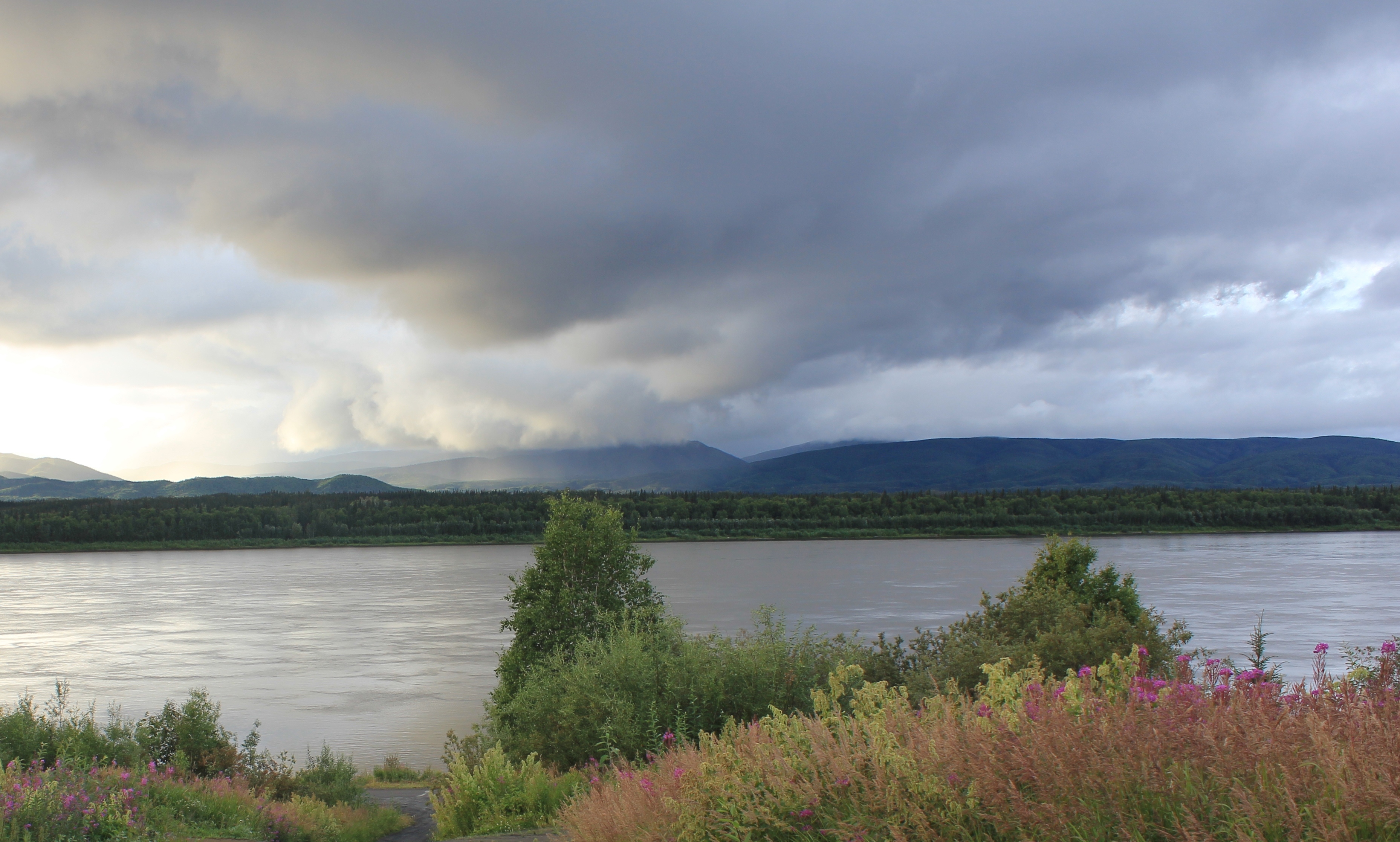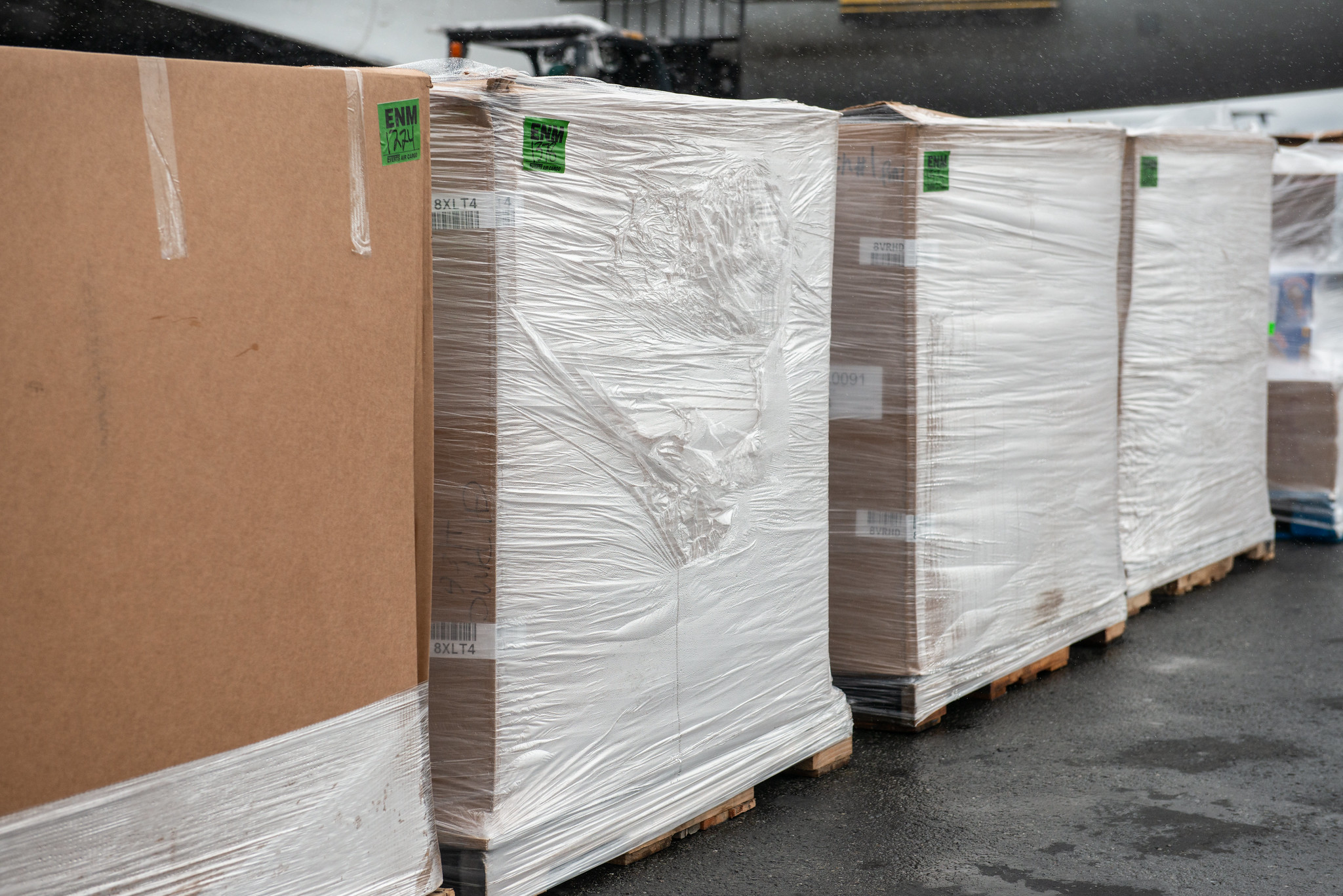Dismal Yukon River salmon returns prompt widespread fishing closures, emergency aid — and tough questions
The summer chum run was the lowest on record.

A decades-long decline in salmon in the Yukon River has reached a crisis this year, forcing harvest closures and prompting emergency shipments of salmon from other regions of Alaska to river residents who are otherwise facing food shortages.
The salmon species that are staples for Indigenous communities along the Yukon River in Alaska and Canada — chum and chinook, also known as king salmon — are in dire condition, according to fishery managers. The summer chum salmon run in the Yukon River was the lowest on record and the fall return, which is just starting, is also weak, the Alaska Department of Fish and Game said. In Canada’s Yukon Territory, an ultra-low return has resulted in closures of all Chinook harvests.
The Alaska Department of Fish and Game is encouraging river residents to try to harvest food other than salmon, said Christy Gleason, a fishery manager. “We’re really encouraging fishers to target non-salmon species in your gear,” Gleason said in a weekly Yukon River status teleconference held on Tuesday.
One type of emergency response has come in the form of food aid to villagers. On Tuesday, 12,500 pounds of Prince William Sound chum salmon was flown from Anchorage to the Yup’ik village of Emmonak, where it was to be repackaged and distributed to various communities. That was part of a $75,000 purchase authorized by Gov. Mike Dunleavy that is funding multiple deliveries to the salmon-starved region.
“While this donation cannot replace a bountiful subsistence fishing season, the collaboration of local business leaders, tribal and village leaders, and the seafood industry goes a long way in assisting our communities,” Dunleavy said in a statement.
Tuesday’s emergency delivery followed other shipments to Yukon River, most notably a delivery of 25,000 pounds of salmon from the Bristol Bay region, which enjoyed a record-high run this year. The Bristol Bay salmon was donated by that region’s processors, with distribution coordinated by the nonprofit SeaShare.

The Yukon River salmon problems are longstanding.
Salmon runs have declined drastically since the late 1990s. In several of those years, even subsistence fishing was severely restricted and Chinook salmon passage obligations spelled out in the U.S.-Canada Pacific Salmon Treaty were not met.
Additionally, the fish themselves are getting smaller. The fish have shrunk over the past 60 years, according to recent research led by University of Alaska Fairbanks scientists, and the change is attributed to quicker maturation and less time spent in the ocean.
The list of potential culprits is long. Suspected causes include climate change, which is heating both the ocean waters where salmon spend years growing and the river headwaters where salmon are born and return to spawn, said Ben Stevens, tribal resources manager for the Tanana Chiefs Conference. Other suspected causes of the decline are commercial fishing practices at sea that may be snaring too many Yukon River salmon as incidental bycatch, mining pollution along the river and problems stemming from a dam at Whitehorse, the principal city of the Yukon Territory, Stevens said in an interview.
At a weekly teleconference on Yukon River fishery conditions, managers and community members from both sides of the border gave grim updates about the runs.
“It’s looking like another miserable fall chum year,” Gerald Maschmann, a subsistence fisheries manager with the U.S. Fish and Wildlife Service, said in the teleconference.
At Beaver, Alaska, an Athabascan village at about the midpoint of the nearly 2,000-mile river, no one is fishing, reported Rochelle Adams. “There’s not even boats on the water,” she said in the teleconference. “It’s really sad.”
In the Yukon Territory, the closure of fishing has “been a huge sacrifice and I know it will hit hard this winter,” said Elizabeth MacDonald of the Yukon Salmon Sub-Committee, a Whitehorse-based organization that advises the government on salmon policy.
Alaska fishermen Charlie Wright said he sees evidence that Yukon River salmon are changing their swimming and spawning routes in response to overheating of river water, which has been found to cause heat stress for the fish. Wright, from the Athabascan village of Rampart, said during the teleconference that he has found tributaries that were not previously used much by the fish but are now “thick with baby king salmon.” Those tributaries hold cold water running down from mountain glaciers. “It might be that they’re changing their habits,” he said.
He said he plans to get some of those salmon this fall so that they can be genetically tested to determine where their usual headwaters are located.
The Tanana Chiefs Conference’s Stevens, who has said this year’s widespread harvest closures are unprecedented, said emergency salmon shipments are helpful in the short term but longer-term responses are needed. Current management practices appear to benefit commercial harvesters, while Indigenous residents along the Yukon River are suffering, he said.
“They didn’t cause the problem but they’re having to shoulder the burden of fixing the problem,” he said. “I don’t think that’s going to happen on an empty stomach.”